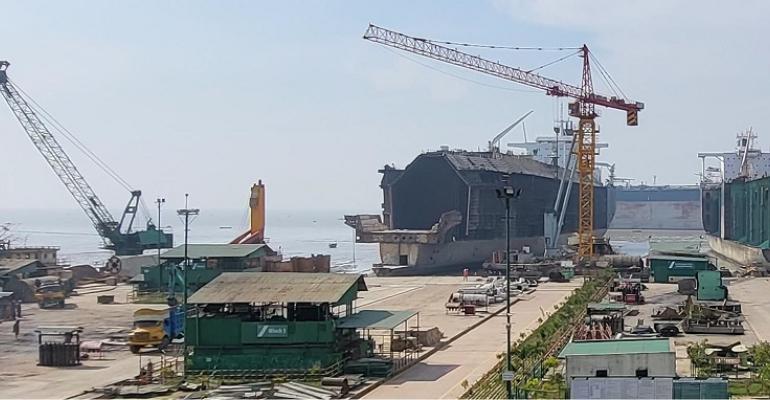It brings the entry into force of the Hong Kong International Convention for the Safe and Environmentally Sound Recycling of Ships one step closer, however, to meet all of the entry-into-force criteria, the HKC needs one large-flag nation to sign up.
First adopted by the IMO at a Diplomatic Conference in Hong Kong in 2009, the HKC requires the ratification by 15 nations accounting for 40% of global commercial shipping in gross tons, with a combined maximum annual ship recycling volume of not less than 3% of their total tonnage.
Although 20 nations have now signed, their combined tonnage only totals about 30% of the world’s merchant shipping. Hence the requirement for one large flag nation.
The 14-year process, which is not over yet, prompted the European Union to draw up its own set of rules in the form of the EU Ship Recycling Regulation (EU SRR). Its requirements do not align with those of the HKC and so far, despite substantial investment and significant upgrades at shipyards, not a single recycling facility in India, Bangladesh, or Pakistan has been approved under the EU SRR framework. Meanwhile, 97 yards in India and three in Bangladesh have been validated by international classification societies as compliant with the HKC.
So owners whose ships fly the flags of European nations cannot sell to recycling facilities on the Indian subcontinent. Experts warn that this is likely to result in a recycling logjam because the only other large-scale recycling nation is Turkey. But its yards, located in the Aliaga region, have nowhere near the capacity to recycle the likely volume of end-of-life ships in the years ahead.
The issue is further complicated by the fact that under the requirements of the United Nations Basel Convention on the disposal of ‘waste’, owners of ships in OECD nations cannot export so-called waste to non-OECD nations. Despite the fact that end-of-life ships are sometimes bought for further trading during their scrap voyage, especially when freight markets are volatile, they are still deemed as waste in legal terms.
Commenting on the Bangladesh move, John Stawpert, Senior Manager (Environment and Trade) at the ICS, said: “Bangladesh shows leadership by committing to ratify the Convention. Our industry is international and ship recycling can only be effectively governed through a global system. Regional systems that ignore the economic realities of the industry are easily circumvented and this positive development will guarantee sufficient compliant recycling capacity under the oversight of national authorities and the United Nations regulator, the International Maritime Organization.
“As the industry continues to push forward on its decarbonisation trajectory, ship recycling will be of significant importance in meeting net zero emissions by 2050 as the existing fleet is decommissioned in coming years to be replaced by net zero vessels. Through the ratification of the Convention a supply of vessels for facilities that are compliant with the Hong Kong Convention will be guaranteed.”
Copyright © 2024. All rights reserved. Seatrade, a trading name of Informa Markets (UK) Limited.
Add Seatrade Maritime News to your Google News feed.  |

